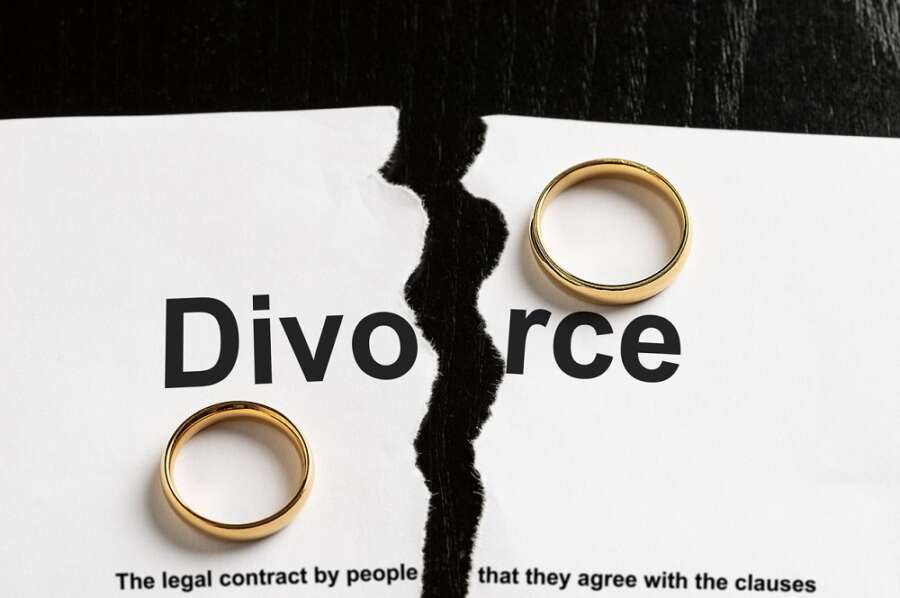- There were 113,505 divorces in England and Wales in 2021 – a 9.6% increase on 2020.
- The increase could reflect delays to proceedings caused by the pandemic.
- The number of opposite sex divorces increased 4% from 2019 figure.
- Pre-pandemic the divorce rate was declining.
ONS has released divorce data for England and Wales in 2021 Divorces in England and Wales – Office for National Statistics (ons.gov.uk)
Helen Morrissey, senior pensions and retirement analyst at Hargreaves Lansdown:
“Divorce is on the rise again -surging 9.6% on the previous year and hitting the highest number since 2013. Of course, the pandemic will have played its part with disruption to court activity meaning many applications have been delayed but the fact remains the figures are still up on pre-pandemic. Looking ahead we could see numbers continue to swell as pandemic lockdowns will have put even the strongest relationships to the test.
The introduction of no-fault divorces earlier this year could also act as a further driver for couples to split as there is no longer any need to assign a reason – such as adultery- to the decision to split. In theory this has the potential to take a lot of acrimony and time out of the process which could save you a lot of money as well as stress.
However, it is important to make sure financial arrangements are properly considered as part of the process. The key asset considered is usually the house, but pensions and other assets should also be part of the discussion. In fact, sometimes a pension can be worth as much as the family home – or more. If you try to rush through your divorce, or assume pensions are too complicated to worry about, you could be leaving yourself severely short of cash in the long run.
It’s a discussion that is not happening anywhere near enough during divorces and people often realise the problem way too late. Getting a pension specialist to help you during your divorce can help you and your spouse come to the best decision about whether you offset the pension against other assets, split it now or share it when retirement comes. It is a vital part of making sure both partners leave the marriage with a fair financial deal.”
Even when a pension is considered, it’s often offset against the family home, so that one of the couple can remain there. Before you choose this option it’s worth considering long and hard whether it’s worth it, whether staying in the property is affordable, and where this leaves your retirement plans.
If you have given up your right to a spouse’s pension, or if you have split a pension between you, it’s worth considering what happens now you are no longer married. You could find yourself approaching retirement with little, if any, pension and facing some tough decisions about how you are going to live. So, when the dust settles after your divorce, you need to start making plans for your retirement as soon as possible.”
Five steps to get back on your feet financially after divorce
- Rebuild your savings: Divorce can be horribly expensive, so there’s every chance you’ve drained your emergency savings down to the dregs. It means that one of your first priorities afterwards is to build an emergency savings safety net of 3-6 months’ worth of essential expenses in an instant access savings account.
- Tackle expensive debts: Sometimes couples will have debts that are split during the divorce process, and sometimes they’ll end up borrowing as a result of juggling a smaller budget with legal costs. If you have expensive debts, repaying them should be your top priority. Make sure you keep up with minimum repayments, and then prioritise the most expensive debt first. If your debts are too big to tackle without help, it’s worth speaking to a debt charity like Stepchange.
- Review your protection: Think about your new protection needs. If you’re paying child maintenance, you may need life insurance to cover payments in the event of your death. Likewise, if you’re receiving spousal maintenance, you may want insurance to cover your ex’s life. You may need to change your nomination of beneficiaries for your pensions and work-based death in service benefits.
- Redo your will: You need to make a new one as quickly as possible to ensure your estate will be divided according to your wishes.
- Revisit your overall position: After a divorce you will need to revisit your longer-term savings and investments too, and review the damage done. You may well need to rebuild your portfolio or your pension, and rethink your plans for retirement, so the sooner you start, the better.
